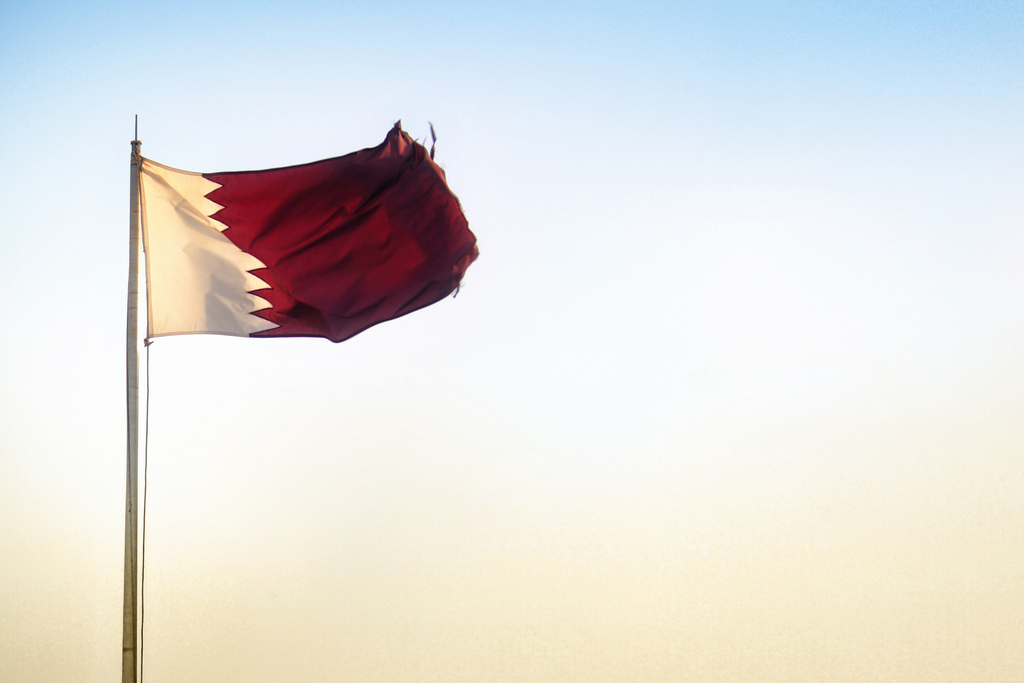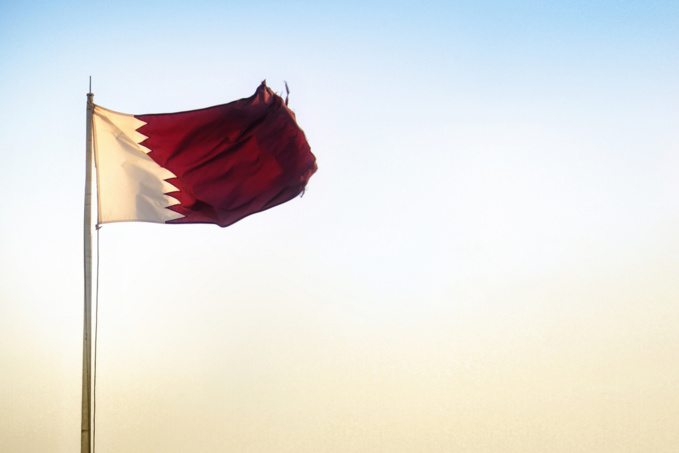The 38th GCC summit that was finished yesterday in Kuwait City was the first meeting of the leaders of the Persian Gulf in six months. Recall that on June 5, three members of the big regional six - Saudi Arabia, the United Arab Emirates and Bahrain - unexpectedly announced a break with Qatar, accusing the country in supporting terrorism and establishing special ties with Iran. After that, an air and sea blockade was launched against Doha, which continues today.
In the situation of an acute split of the quarreled neighbors, the initiator of reconciliation at the end of last week was Kuwait. The country, together with another member of the GCC, Oman, did not participate in the blockade. Emir of Kuwait Sabah Al-Ahmad Al-Jaber Al-Sabah, through his ambassador in Doha, handed the letter of invitation to the Qatar emir to visit the summit in Kuwait City. The proposal caught the GCC members by surprise. The intrigue around whether the opponents of Qatar will want to be at the same table with the ignored emir was preserved until the last moment.
As a result, efforts of Al-Kuwait allowed the parties to take a cautious step towards each other. While the UAE and Bahrain confined themselves to sending the second-tier officials to the forum, Riyadh informed that Saudi King Salman bin Abdul Aziz Al Saud will participate in the summit. Eventually, Foreign Minister Adel al-Jubeir arrived. Thus, this time, Riyadh preferred an open demarche to participation in the diplomatic process initiated by Kuwait and supported by Oman. It is noteworthy that while the UAE and Bahrain did not support the initiative of Kuwait, the nephew of the Sultan of Oman and the second person in the leadership of the country, Fahd bin Mahmoud al Said, also took part in the summit.
The six hours-long forum, held behind closed doors, did not bring any specific agreements. Nevertheless, the very presence at the same table of high-ranking officials of the main antagonistic states in the Gulf, which a few days ago could not be imagined, is of significant symbolic significance.
Six months after the start of the diplomatic and economic war in the Persian Gulf, the alignment of forces within the "big six" of the GCC suggests formation of two opposite approaches to the "Qatari problem". While the Saudi-led troika insists on continuing the blockade of Qatar, Kuwait and Oman are making efforts to complete the confrontation that threatens unification of the Gulf monarchies, which is called the regional analogue of the EU.
The summit in Kuwait was preceded by a sharp activation of the Doha diplomacy, whose central figure in recent days was the deputy prime minister and foreign minister, Mohammed bin Abdulrahman Al Thani. Thus, in his speech at a conference in Rome, he called the main reason for the crisis in the Persian Gulf "attempts of individual powers to assert their leadership by interfering in the affairs of other states and unleashing a mediated war." "Perhaps, I presented a gloomy picture of what was happening, but I did not exaggerate the colors, on the contrary, the real situation is even grimmer than I described," said Qatar Foreign Minister and added: "We see that the blockade is an obstacle to collective efforts aimed at security in the whole region. "
Recall that the ongoing blockade has already dealt a serious blow to the economy of the emirate: according to Bloomberg, as of October, the damage amounted to $ 38.5 billion.
source: bloomberg.com, reuters.com
In the situation of an acute split of the quarreled neighbors, the initiator of reconciliation at the end of last week was Kuwait. The country, together with another member of the GCC, Oman, did not participate in the blockade. Emir of Kuwait Sabah Al-Ahmad Al-Jaber Al-Sabah, through his ambassador in Doha, handed the letter of invitation to the Qatar emir to visit the summit in Kuwait City. The proposal caught the GCC members by surprise. The intrigue around whether the opponents of Qatar will want to be at the same table with the ignored emir was preserved until the last moment.
As a result, efforts of Al-Kuwait allowed the parties to take a cautious step towards each other. While the UAE and Bahrain confined themselves to sending the second-tier officials to the forum, Riyadh informed that Saudi King Salman bin Abdul Aziz Al Saud will participate in the summit. Eventually, Foreign Minister Adel al-Jubeir arrived. Thus, this time, Riyadh preferred an open demarche to participation in the diplomatic process initiated by Kuwait and supported by Oman. It is noteworthy that while the UAE and Bahrain did not support the initiative of Kuwait, the nephew of the Sultan of Oman and the second person in the leadership of the country, Fahd bin Mahmoud al Said, also took part in the summit.
The six hours-long forum, held behind closed doors, did not bring any specific agreements. Nevertheless, the very presence at the same table of high-ranking officials of the main antagonistic states in the Gulf, which a few days ago could not be imagined, is of significant symbolic significance.
Six months after the start of the diplomatic and economic war in the Persian Gulf, the alignment of forces within the "big six" of the GCC suggests formation of two opposite approaches to the "Qatari problem". While the Saudi-led troika insists on continuing the blockade of Qatar, Kuwait and Oman are making efforts to complete the confrontation that threatens unification of the Gulf monarchies, which is called the regional analogue of the EU.
The summit in Kuwait was preceded by a sharp activation of the Doha diplomacy, whose central figure in recent days was the deputy prime minister and foreign minister, Mohammed bin Abdulrahman Al Thani. Thus, in his speech at a conference in Rome, he called the main reason for the crisis in the Persian Gulf "attempts of individual powers to assert their leadership by interfering in the affairs of other states and unleashing a mediated war." "Perhaps, I presented a gloomy picture of what was happening, but I did not exaggerate the colors, on the contrary, the real situation is even grimmer than I described," said Qatar Foreign Minister and added: "We see that the blockade is an obstacle to collective efforts aimed at security in the whole region. "
Recall that the ongoing blockade has already dealt a serious blow to the economy of the emirate: according to Bloomberg, as of October, the damage amounted to $ 38.5 billion.
source: bloomberg.com, reuters.com



















